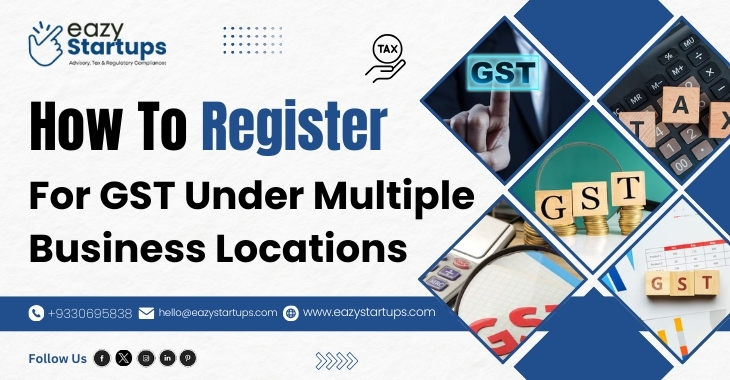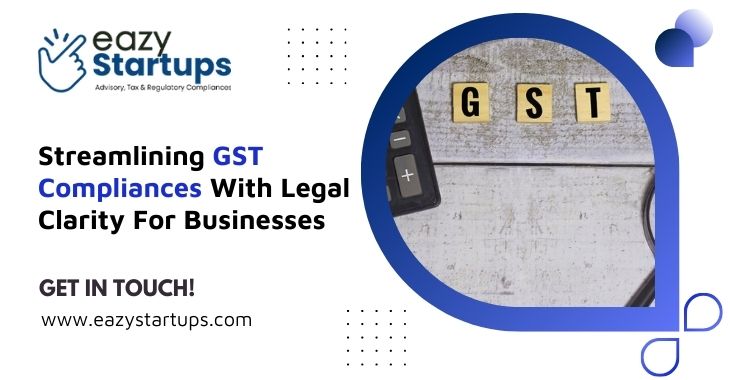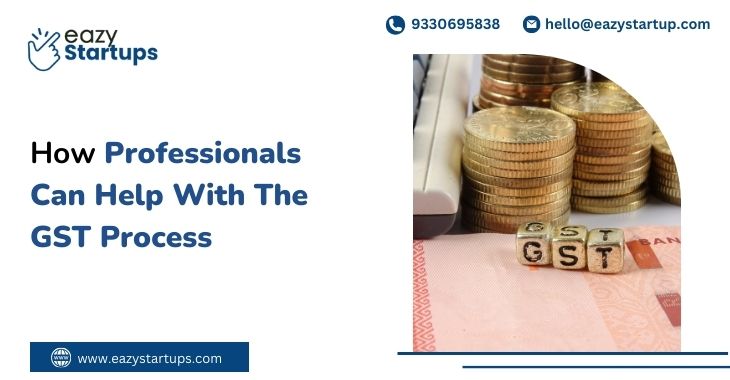Goods and Services Tax (GST) is a mandatory tax structure for businesses in India.It is imperative that you register each location under GST in accordance with the tax requirements if you operate in more than one place. Businesses can register more than one entity for different states or branches under the GST system. Avoiding legal issues and ensuring compliance with tax rules are two benefits of accurately registering under GST for various business locations. If you need help for GST Registration Online or GST Registration Cancellation Online, contact Eazy Startups.
Here’s a step-by-step guide on how to register for GST under multiple business locations:-
1. Understand the GST Registration Requirements
2. Open the GST Portal and log in
3. Select the Appropriate Business Category
4. Fill in Business and Location Details
5. Upload Required Documents
6. Verify and Submit the Application
7. Monitor Your Application’s Status
8. Receive the GST Registration Certificate
Understand the GST Registration Requirements:
You must determine whether your company needs several GST registrations before moving further with multiple location registrations. If your business operates in more than one state, you must obtain separate GST registrations for each state.
Open the GST Portal and log in:
Go to www.gst.gov.in, the official GST portal, to start the registration procedure. If your business is already registered, log in with your current GST login information. To apply for a new registration, go to the “New Registration” area and fill in the necessary information, including your business name, PAN, and operating state.
Select the Appropriate Business Category:
You must choose the right business category when registering for several locations. You must register in that state as a different business entity if you are requesting a separate GST registration for another state. Choose the option for numerous registrations under the same PAN if you are registering for many company verticals in the same state. Selecting the appropriate category is essential for accurate tax compliance and filing.
Fill in Business and Location Details:
After choosing the right category, you must enter your company’s information. This contains the company name, trade name, main office address, and information about other locations. You must submit the addresses and accompanying documentation for each location separately if you are registering for more than one in a different state. Delays in the approval process can be avoided by making sure the details are correct.
Upload Required Documents:
Depending on the region and business type, various documents must be uploaded in order to register for GST in several places. The PAN card of the business owner, proof of business address, bank account information, and the authorization letter, if the registration is being completed by an authorized representative, are frequently needed documents. You could be required to provide more paperwork, like financial documents and information about your company structure, if you are registering more than one vertical in the same state.
Verify and Submit the Application:
Verification comes next when all the relevant information has been entered and the needed documents have been uploaded. To guarantee validity, the application needs to be validated with either an Electronic Verification Code (EVC) or a Digital Signature Certificate (DSC). After verification, use the GST portal to submit the application. An Application Reference Number (ARN), which you can use to monitor the progress of your GST registration request, will be issued to you.
Monitor Your Application’s Status:
After submitting your application for GST registration, it’s critical to keep an eye on its progress. The GST portal’s “Track Application Status” section allows you to monitor the status using the ARN.
Receive the GST Registration Certificate:
The GST authorities will accept your application and issue a GST Registration Certificate following a successful verification process. Each registered location’s unique GST Identification Number (GSTIN) will be included in this certificate. You will be given distinct GSTINs for each location if you have registered more than one.
Conclusion
Businesses that operate in many states or oversee various business verticals must register for GST under multiple business locations. Businesses should keep abreast of the most recent GST regulations and get advice from a tax professional if necessary for a hassle-free registration process. If you need help for GST Registration Online or GST Registration Cancellation Online, contact Eazy Startups.











Recent Comments